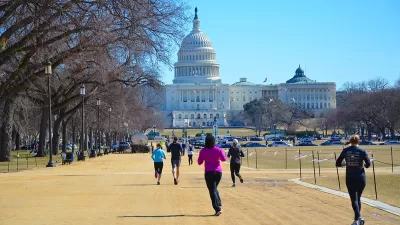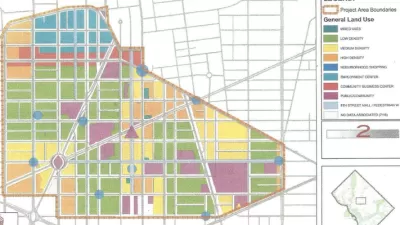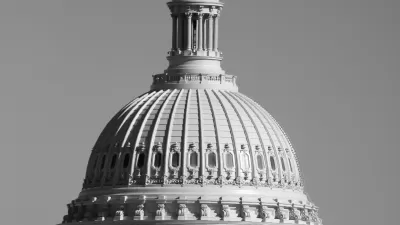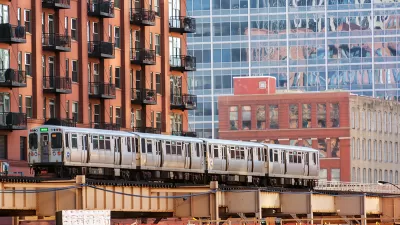A neutral capital "district" may have sounded like a fine idea in the early 1800s. Today, Washington, D.C.—the burgeoning city, not the political fabrication—is crippled by the whims of Congress and a host of anti-urban policies.

Washington, D.C.'s license plates have long complained of "taxation without representation." That pithy protest belies a complex and increasingly dire situation for the nation's capital city. On everything from gun control and marijuana decriminalization to building heights and transportation plans, The District must almost always defer to Congress. Unfortunately, Congress hates D.C. just about as much as D.C. hates Congress. Lawmakers from rural areas and others who treat D.C. as an office and not a city have often acted against its best interests.
Activists in D.C. have long called for statehood or, at least, substantial representation and autonomy. But Congress has not budged, because, "Unlike the enfranchisement of women and African-Americans last century, D.C. statehood doesn’t bring new voting constituents to any current elected official. As a result, members of Congress feel little political pressure to take action; in fact, they stand to see their power diluted by the addition of a new delegation."
While the city has grown, and gentrified, tremendously in recent years, this growth is yet another reason why the city needs serious governance and planning. Writing for Next City, Aaron Wiener makes an impassioned case for the unshackling of The District.
"It has become, at turns, a testing ground and a fiefdom for federal officials from faraway rural areas whose policy philosophies have entirely different implications at home than they do in the capital city. Time and again, the city’s ability to address its uniquely urban challenges, to grow and prosper, to fulfill the wishes of its city-dwelling residents, has been squashed by federal control."
FULL STORY: Why Urbanists Everywhere Should Be Fighting for D.C. Statehood

Alabama: Trump Terminates Settlements for Black Communities Harmed By Raw Sewage
Trump deemed the landmark civil rights agreement “illegal DEI and environmental justice policy.”

Planetizen Federal Action Tracker
A weekly monitor of how Trump’s orders and actions are impacting planners and planning in America.

Why Should We Subsidize Public Transportation?
Many public transit agencies face financial stress due to rising costs, declining fare revenue, and declining subsidies. Transit advocates must provide a strong business case for increasing public transit funding.

Understanding Road Diets
An explainer from Momentum highlights the advantages of reducing vehicle lanes in favor of more bike, transit, and pedestrian infrastructure.

New California Law Regulates Warehouse Pollution
A new law tightens building and emissions regulations for large distribution warehouses to mitigate air pollution and traffic in surrounding communities.

Phoenix Announces Opening Date for Light Rail Extension
The South Central extension will connect South Phoenix to downtown and other major hubs starting on June 7.
Urban Design for Planners 1: Software Tools
This six-course series explores essential urban design concepts using open source software and equips planners with the tools they need to participate fully in the urban design process.
Planning for Universal Design
Learn the tools for implementing Universal Design in planning regulations.
Caltrans
Smith Gee Studio
Institute for Housing and Urban Development Studies (IHS)
City of Grandview
Harvard GSD Executive Education
Toledo-Lucas County Plan Commissions
Salt Lake City
NYU Wagner Graduate School of Public Service





























